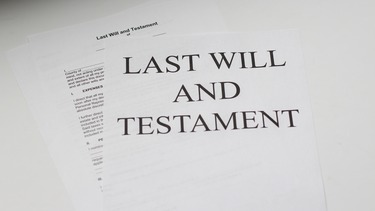
In the Lone Star State, a will is a testament to an individual’s wishes for their assets, loved ones, and legacy. One day, you might find yourself in a situation where you must access a copy of a will.
Maybe you’re a beneficiary or an executor. Or perhaps you’re simply a family member seeking clarity.
Whatever the case, the law provides a structured process for obtaining a copy of a will in Texas.
Nonetheless, knowing where and how to start can be daunting, given the vast and intricate legal landscape. But fear not.
We’ve written this guide on how to get a copy of a will in Texas to decipher this process for you, with in-depth instructions. Let’s set out on this journey together.
How to Get a Copy of a Will in Texas: A Detailed Guide
Gathering Information and Making Preparations
Knowing how to find a will in Texas begins by assessing all the available information concerning the will. This might include:
- Reference numbers,
- The parties’ names,
- Relevant dates, and
- The drafter’s contact information.
Having this information at hand can significantly streamline the subsequent steps and increase your chances of swiftly locating the document. Ideally, your information will lead you to the exact location of the will. If not, it will at least give you a few leads.
For instance, imagine you discover that the deceased individual collaborated with an attorney in drafting the will. In that case, the lawyer or their law firm might possess a copy of the will.
Perhaps they may at least be aware of the will’s whereabouts. If the will has gone through probate, the court responsible for the estate will certainly have a copy.
Obtaining a Copy of a Will from a Probate Court
If the will went through probate court, it constitutes a public record. Consequently, head to the county clerk’s office where the deceased resided.
The county of the deceased’s final residence is most likely where the will was registered. With the digitization of many public records, certain counties might even provide the convenience of online access to probate records.
This digital avenue allows you to view and even request a copy of the will without leaving the comfort of your home.
When you arrive at the county clerk’s office, be prepared to fill out a form to access the probate records. This form will likely ask you for various information regarding the will, including:
- The deceased person’s full name,
- The probate case number, and
- The date of the last proceeding.
There’s typically a nominal fee involved when requesting a copy. This cost varies according to the county’s regulations.
Obtaining a Non-Probated Will
The journey to obtaining a copy is more complicated if the will has not gone through the probate process, which is required before it becomes effective.
Generally, only those designated as executors or other individuals with explicit authorization can access a non-probated will. So, it’s crucial to identify yourself during this process.
Be ready to clarify your relationship with the deceased and present a valid rationale for needing the will. Always have your identification on hand. Also, bring any documentation substantiating your link to the deceased or their estate, if possible.
If you’re under the impression that you possess a legitimate entitlement to view the will (for instance, if you are a beneficiary), it might be beneficial to engage legal assistance to ensure access.
If you’re privy to whom the executor or trustee is, it’s a smart move to contact them directly. They’ll inevitably have a copy of the requisite documents and could readily provide you with one.
Be Patient, Flexible, and Persistent
Remember that patience is often key in these situations. The probate process can stretch over extended periods. Persistence is also important.
If you’re waiting for a will to complete its circuit through a probate court, maintain regular communication with the county clerk’s office or the identified executor to stay abreast of its progression.
Finally, each individual’s scenario is distinct, so approach the process flexibly, considering there may be specificities or deviations based on your case.
Should you find yourself grappling with challenges during your pursuit, don’t hesitate to seek the counsel of a Texas estate attorney. Legal professionals are adept at navigating the intricate maze of Texas probate and estate legislation. They can be invaluable allies in obtaining the documents you seek.
Does a Will Need to Be Recorded in Texas?
In Texas, a will must be submitted to court when someone dies, but not all wills require probate. For a will to be probated, the court must determine if administration is necessary.
Are Wills Public Records in Texas?
Yes. As stated, Texas law deems wills to be public records once admitted to probate court. This means that any member of the public can access and view the will by visiting the county clerk’s office in the county where the will was probated. They can also request to see the probate file and obtain a copy of the will, usually for a nominal fee. Wills that are not yet in the probate process are not public records.
Establishing your own will is not the most difficult process in the legal world, but it takes dedication, planning, and patience.
At the heart of every legal journey lies complexity, be it a maze of laws, stipulations, and fine print. Amid this complicated landscape, our mission at Massingill is to simplify the complex. Simplifying the complex is the bedrock of our approach.
Our approach is popular, as our stellar 5-star Google rating shows. In addition, the Massingill team has an unwavering dedication to excellence. Our work isn’t just competent.
Its outstanding quality speaks for itself. Finally, we believe customers have the right to easy-to-understand, transparent pricing. You won’t find hidden fees or unexpected bills with us, just upfront flat rates. This way, you always know what to expect.
Whether it’s understanding the nuances of a will or delving into Texas’s business and estate landscape, remember that Massingill is here. We stand ready to illuminate the path forward with clarity and expertise. Give us a call or schedule an appointment online to get started.




